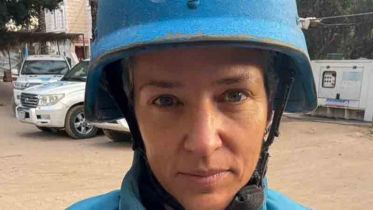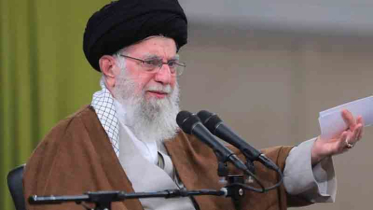
Syria Imposes Conservative Beach Dress Code as Islamists Cement Cultural Shifts Post-Assad
In a sweeping cultural policy shift under its new Islamist-led government, Syria’s Tourism Ministry on Tuesday issued a directive mandating conservative dress codes at all public beaches and pools across the country. The move comes six months after the collapse of Bashar al-Assad’s long-standing regime and the rise of Hayat Tahrir al-Sham (HTS), a former Al-Qaeda affiliate now heading Syria’s transitional government.
The new regulations require women to wear burkinis or full-body swimwear in public swimming areas and to cover themselves with loose robes or beach cover-ups when moving between the beach and other public spaces. Men must wear shirts outside of designated swimming zones, and topless attire is banned in public areas like hotel lobbies and restaurants.
The directive, signed by Tourism Minister Mazen al-Salhani and published on the ministry’s official Facebook page, framed the rules as part of “the requirements of public interest” and an effort to “respect public taste and the sensibilities of various segments of society.”
“More modest swimwear is required at public beaches and pools,” the directive stated. “In public areas outside of beaches and pools, it is preferable to wear loose clothing, covering shoulders and knees, and avoid transparent or overly tight clothing.”
Exceptions and Enforcement
The ministry clarified that Western-style swimwear would still be allowed at private beaches and pools, and at 4-star or higher international-standard resorts and hotels. Despite this flexibility for foreign tourism enclaves, compliance will be strictly enforced at public venues, with lifeguards and beach supervisors tasked with monitoring dress code adherence.
No specific penalties for non-compliance have been outlined, raising concerns over how enforcement may play out in practice under Syria’s transitional governance.
Broader Implications of Islamist Rule
This cultural directive underscores the growing influence of HTS, the Islamist coalition that seized power following Assad’s fall in December 2024. HTS, formerly known as the Al-Nusra Front, is designated as a terrorist organization by both the United States and the United Kingdom. Now rebranded and occupying a central role in Syria’s new governance structure, HTS has begun reshaping Syrian society along more conservative Islamic lines.
Interim President Ahmad al-Sharaa, a former HTS commander, assumed office after leading the rapid military campaign that ousted Assad. In March, he signed a provisional constitution implementing Islamist rule for a five-year transitional period, during which the country is expected to write a new constitution and potentially hold elections.
While al-Sharaa has promised to “balance Islamic values with national identity,” human rights organizations remain skeptical. In a March 2025 report, Human Rights Watch warned that al-Sharaa’s “broad authority raises serious concerns about the durability of the rule of law and human rights protections unless clear safeguards are put in place.”
Tourism Revival and International Investments
The dress code announcement coincides with a strategic campaign to revive Syria’s tourism industry, battered by years of civil war and international isolation. In a move that stunned many observers, the United States lifted sanctions on Syria in May 2025, paving the way for renewed foreign investment. President Donald Trump hailed the decision as offering Syria a “chance at greatness.”
Tourism Minister al-Salhani recently courted Qatari and Saudi investors for projects reportedly worth billions of dollars. He argued the dress code would promote a “respectful and inclusive environment” for a socially diverse Syrian population, while not deterring high-end tourism in exclusive resort areas.
“We believe in showcasing Syria’s cultural, social, and religious identity while welcoming the world,” al-Salhani said. “These regulations reflect a harmonious balance.”
Reaction and Outlook
Reactions to the policy have been mixed. Some conservative segments of society welcomed the move as a return to “moral values,” while secular Syrians and rights activists decried it as a rollback of personal freedoms. Critics argue it reflects a broader trend of increasing state control over individual behavior under the banner of religious morality.
The coming months will likely determine how deeply these cultural shifts take root — and whether Syria can walk the tightrope between embracing conservative religious values and attracting the global tourism and investment it now desperately seeks.

































.png)
.png)







